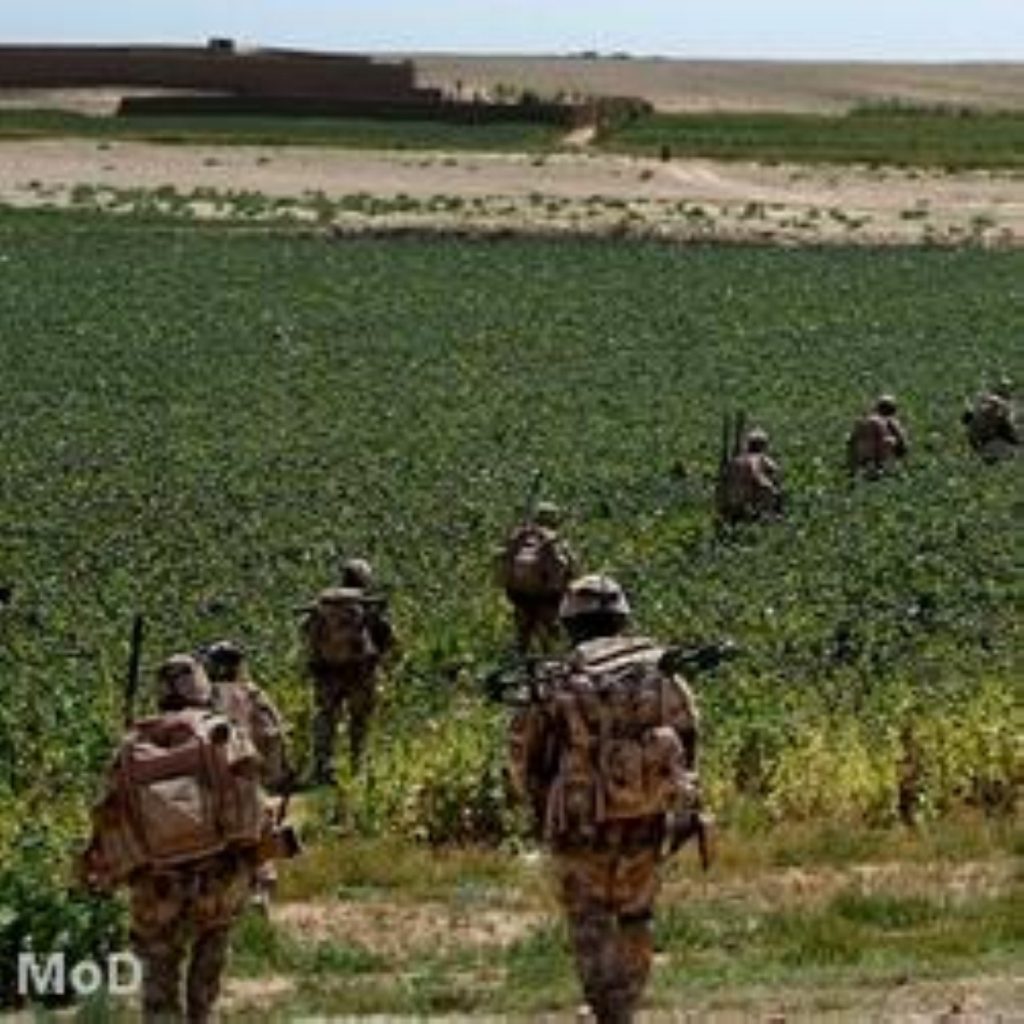UK eyes Afghanistan combat exit
By Alex Stevenson
Britain will seek to pull its combat troops out of Afghanistan within five years, its ambassador in Kabul has said.
At a Foreign Office briefing ahead of this month’s forthcoming elections Mark Sedwill told journalists international forces would have a very different role next time around.
In Helmand province coalition forces will be unable to guarantee access to polling stations for 30 per cent of the population.
British combat forces in Afghanistan will top the 9,000 mark this year and have recently completed a major operation to free a large area of Taliban influence.
By the time of the next presidential election in 2014, Mr Sedwill said, Afghan forces should be able to take up much of the country’s security responsibilities.
“We very much hope we won’t have western troops in combat roles five years from now,” he explained.
“That said, we will have people in training and mentoring roles for many years.”
Coalition forces aim to increase Afghan army numbers to around 134,000 by 2011, and Afghan police numbers to 40,000 in the same period.
“They can then gradually take the lead,” Mr Sedwill added.
He was upbeat about the current elections, which take place on August 20th. He said the presidential campaign had been much more robust than expected and highlighted four million extra voters registered earlier this year.
In a country where the total population estimate ranges from 26 million to 35 million, Mr Sedwill explained, “this just illustrates the scale of some of the logistical challenges here”.
There have been up to 17 million Afghan voters registering since the 2004 elections and an additional 140,000 in Helmand province alone this year.
While the number of polling stations is expected to be significantly above those in 2004 Mr Sedwill insisted there was no specific benchmark or threshold for success.
“The people who are the real experts. reckon these are probably the most challenging circumstances for elections they have ever experienced,” he said.
“It is much better to go ahead with elections rather than not have them, despite the challenges there are.”
Afghanistan is in the top five poorest countries in the world. One-third of the country is currently affected by the Taliban insurgency and illiteracy levels remain high.
Mr Sedwill was careful to qualify his assessment of the Taliban threat. He refused to accept the term ‘moderate’, pointing out some were interested in the results of provincial elections and that local disputes and ideology often pushed some into tacit approval.
“They don’t really talk about being members of the Taliban – they talk about going with the Taliban,” he said.
“It’s a much more complex phenomenon than sometimes we allow ourselves to believe.”
The UK government is cautiously confident it will be able to achieve elections which, while not perfect, will genuinely reflect the will of the Afghan society.
It appears satisfied that, whichever candidate wins, the international community’s ambitions for Afghanistan will be satisfied.
“We have been working with the candidates so they have a good programme for government,” Mr Sedwill said.
“On the issues themselves, there is a degree of consensus on the issues that really matter to us.”
These include strengthening provincial governance, tackling corruption, and counter-narcotics.





-01.png)